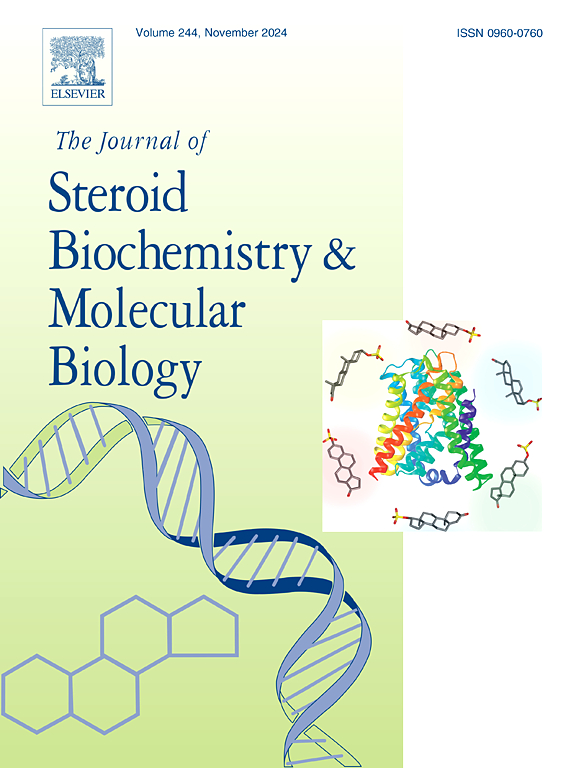维生素D补充与心血管疾病的临床试验:综合证据。
IF 2.7
2区 生物学
Q3 BIOCHEMISTRY & MOLECULAR BIOLOGY
Journal of Steroid Biochemistry and Molecular Biology
Pub Date : 2025-03-15
DOI:10.1016/j.jsbmb.2025.106733
引用次数: 0
摘要
将维生素D缺乏与心血管疾病(CVD)风险增加联系起来的证据可以追溯到20世纪70年代,当时的病例对照研究显示,心肌梗死病例中25-羟基维生素D [25(OH)D]的循环浓度比对照组低,这一点在20世纪80年代心肌中维生素D受体的鉴定中得到了加强。2000年代发表的队列研究提供了更有力的证据(通过在CVD发病前测量25(OH)D浓度),并证实了循环25(OH)D浓度与CVD风险之间的负相关。然而,人们仍然担心残留混淆可能是反向关联的原因。这刺激了几个大规模随机对照试验(RCTs)的启动,将维生素D补充剂与心血管疾病作为预先指定的结果。这些研究的结果与最近代表美国内分泌学会进行的荟萃分析中早期随机对照试验的结果相结合。在14项随机对照试验中,80,547名参与者年龄在50-74岁之间,与安慰剂相比,补充维生素D不能预防心血管疾病:风险比为1.00(95%可信区间为0.93至1.08)。该结果不受研究质量(偏倚风险)、性别、钙联合给药、维生素D剂量或试验环境(社区或住院护理)的影响。这一发现与最近的孟德尔随机化研究一致,孟德尔随机化研究没有发现基因预测的25(OH)D对维生素D缺乏症患者有有益影响。总的来说,目前的证据表明维生素D并不能预防心血管疾病。本文章由计算机程序翻译,如有差异,请以英文原文为准。
Clinical trials of vitamin D supplementation and cardiovascular disease: A synthesis of the evidence
The evidence linking vitamin D deficiency with increased risk of cardiovascular disease (CVD) extends back to 1970s when case control studies showed lower circulating concentrations of 25-hydroxyvitamin D [25(OH)D] in myocardial infarction cases compared with controls, which was strengthened by the identification of a vitamin D receptor in cardiac muscle in 1980s. Cohort studies published in the 2000s provided stronger evidence (by measuring 25(OH)D concentrations before the onset of CVD) and confirmed the inverse association between circulating 25(OH)D concentrations and CVD risk. However, concerns remained about possible residual confounding as the reason for the inverse association. This stimulated the initiation of several large scale randomized controlled trials (RCTs) of vitamin D supplementation with CVD as a pre-specified outcome. Results from these studies have been combined with findings from earlier RCTs in a recent meta-analysis undertaken on behalf of the US Endocrine Society. In 14 RCTs with 80,547 participants aged 50–74 years, vitamin D supplementation did not protect against CVD when compared to placebo: risk ratio 1.00 (95 % confidence interval 0.93–1.08). This result did not vary by study quality (risk of bias), gender, calcium co-administration, vitamin D dose or trial setting (community or residential care). This finding is consistent with recent mendelian randomization studies which have not detected a beneficial effect associated with genetically predicted 25(OH)D in people with vitamin D deficiency. Overall, the current evidence indicates that vitamin D does not prevent CVD.
求助全文
通过发布文献求助,成功后即可免费获取论文全文。
去求助
来源期刊
CiteScore
8.60
自引率
2.40%
发文量
113
审稿时长
46 days
期刊介绍:
The Journal of Steroid Biochemistry and Molecular Biology is devoted to new experimental and theoretical developments in areas related to steroids including vitamin D, lipids and their metabolomics. The Journal publishes a variety of contributions, including original articles, general and focused reviews, and rapid communications (brief articles of particular interest and clear novelty). Selected cutting-edge topics will be addressed in Special Issues managed by Guest Editors. Special Issues will contain both commissioned reviews and original research papers to provide comprehensive coverage of specific topics, and all submissions will undergo rigorous peer-review prior to publication.

 求助内容:
求助内容: 应助结果提醒方式:
应助结果提醒方式:


